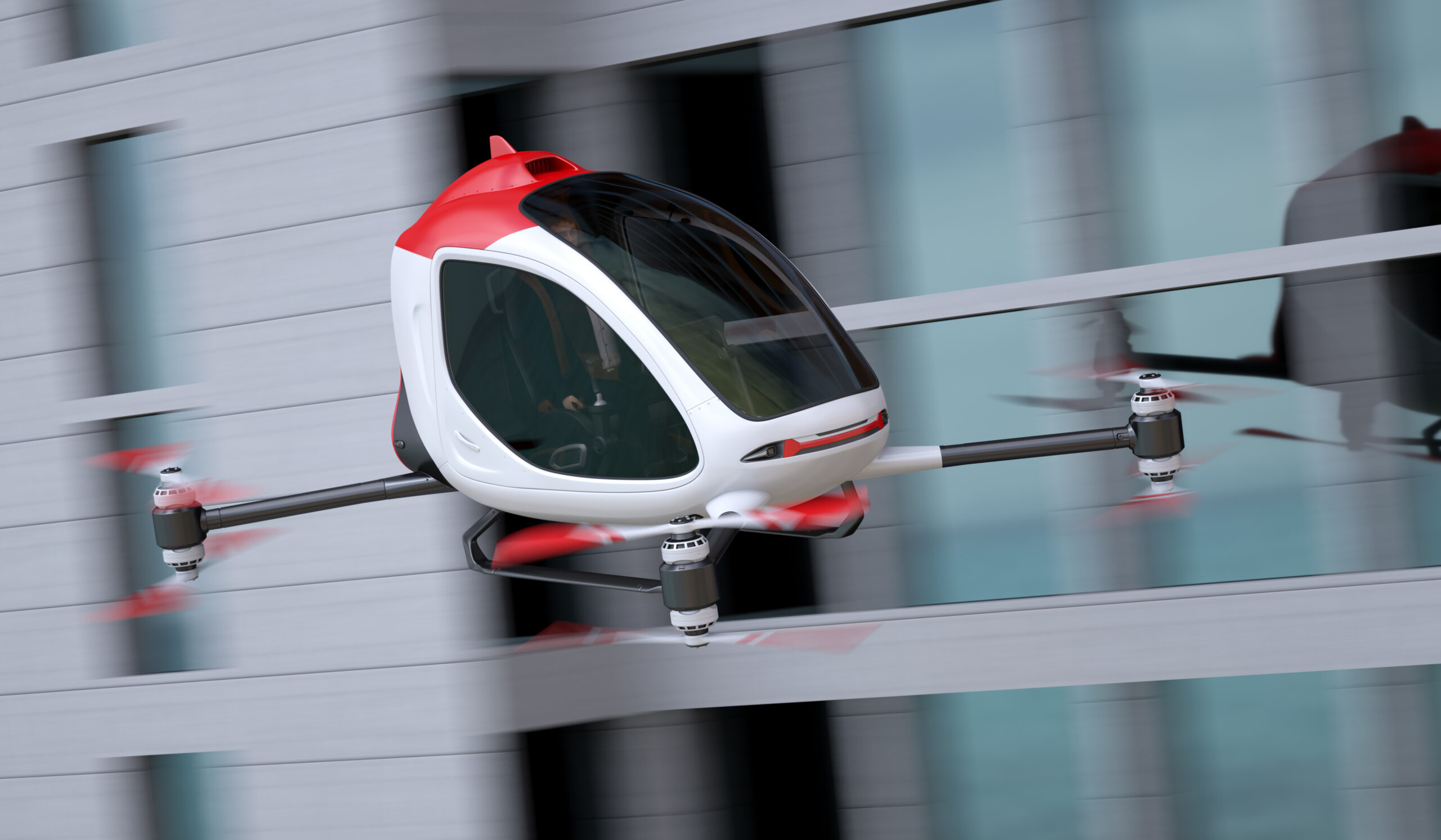To get from A to B we often use a modal mix of transportation. So far, this modal split was mainly driven by planes, trains, buses, and where possible, ferries. In the short-haul range, bicycles, or e-scooters should also be mentioned. Mobility will change fundamentally in the years to come, especially post-pandemic.
Sustainability requirements, new technologies, and urban development are just a few impacts. Innovative transportation concepts like urban air mobility could play a future role in intelligent and efficient multi-modal transportation concepts.
Does a game changer come into play with air taxis?
It can be observed that the startups around electric vertical takeoff and landing (eVTOL) vehicles are developing this new mobility at high speed and with a lot of venture capital.
Areas of application are short-distance transport of passengers, distances of up to 300 km are available with different aircraft types. Mainly inner and intercity transportation is planned, around 50% of this future transportation is predicted to be airport-shuttle. Furthermore, use cases for these new high-flyers are also seen in cargo transportation. The development of cargo drones is even a little further than the flying taxis are. Urgent medical deliverables and parcel services to islands are just a few already known use cases.
“The urban air mobility market is predicted to grow to over USD 9 billion by 2030. The next 3 years will show if multiple and ambitious plans for an urban air ecosystem can be implemented. In any case it has to be a new form of mobility infrastructure”. Dr. Karsten Benz, Professor at Frankfurt University and Senior Advisor Aviation.
Some European startups are having good chances to participate in that development:
Lilium, a Munich based startup, is currently developing a 7-seat electric eVTOL jet. It’s planned mode of usage will be an intercity shuttle. Lilium announced a partnership as well with Spanish infrastructure company Ferrovial to build over 10 landing locations — called „vertiports” in Florida. There is still a long way to go, as the company damaged one of their two prototypes in ground fire in Feb 2021.
Volocopter, another German startup, with 200Mill€ fundraise in 2021 is currently developing an entire Ecosystem including VoloCity Airtaxis. Volodrone Cargo drones and Voloports infrastructure. It has announced to start services in Singapore in 2026 and currently is working with EASA on certification for commercial launch planned in the next 2-3 years.
Airbus is committed to their CityAirbus eVTOL program. Airbus considers new forms of air transport such as urban air mobility an opportunity. The company will develop key technologies for the future of VTOL platforms.
There are a lot more companies to be mentioned like Ehang, Kitty Hawk, Uber Air and others. The coming years will show which of these will have the power of delivering safe and usable eVTOL aircrafts.
Green Field approach
For us, the development of new processes relating to eVTOL solutions is of particular interest. As a human-centric process design company, we focus on the passenger. Our solutions will support the acceptance of new urban mobility concepts.
The infrastructure development of new eVTOL-Ports, the connection of existing airports, passenger processes such as ticketing, ID management and transfers are just a few topics that we already know from airlines and train companies. The opportunity to create blueprints for an easy-to-use, customer-oriented mobility expansion is challenging.
eVTOL will most probably not be a gamechanger in the near future but will add a sustainable alternative into the modal split of future mobility. Announced times to market of the stakeholders are challenging but be prepared to plug in this new concept into passenger centric mobility solutions of the future.
First published at Edenpiekermann:
Additional sources:
